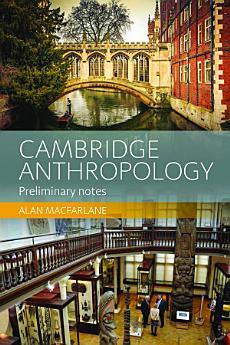Cambridge Anthropology: Preliminary Notes
આ ઇ-પુસ્તક વિશે
Based on thirty-five years of participant-observation fieldwork in the Department from 1975-2009, as Lecturer, Reader and Professor, Alan Macfarlane gives a brief history and reflects on life in the department, including the physical space, clothing, conversation, meetings and micro-politics. He also describes some of the changes over fifty years of post-colonial adaptation.
This small book is part of the celebration for the 100th anniversary of the founding of the Faculty of Archaeology and Anthropology held in Cambridge in February 2015.
લેખક વિશે
Alan Macfarlane was born in Shillong, India, in 1941 and educated at the Dragon School, Sedbergh School, Oxford and London Universities, from which he holds doctorates in both history and anthropology. He is the author of over twenty books, including The Origins of English Individualism (1978) and Letters to Lily: On How the World Works (2005). He has worked in England, Nepal, Japan and China as both historian and anthropologist. He was elected to the British Academy in 1986 and is now Emeritus Professor of Anthropology at the University of Cambridge and a Life Fellow of King's College, Cambridge.






